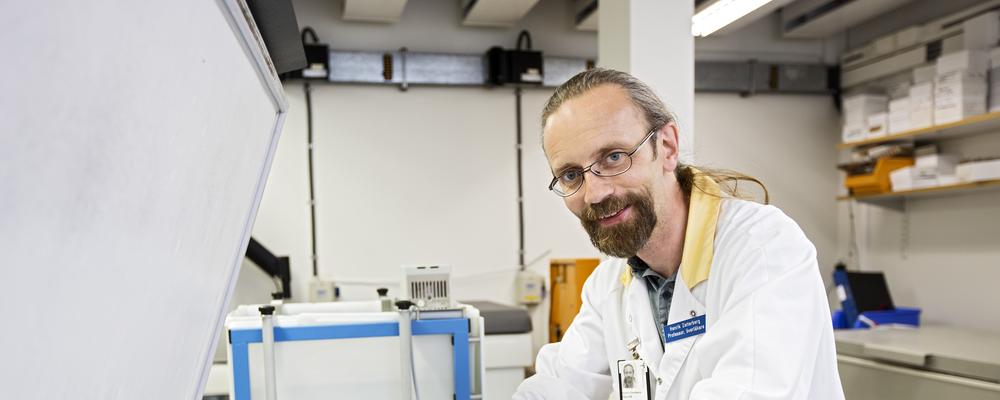What's your research about?
'I’m researching biomarkers for neurodegenerative diseases, the most common being Alzheimer’s disease and Parkinson’s disease. Biomarkers are biological markers that are measurable and can be used to detect the first signs of change early on. In this way we can stop the disease from progressing, and thereby prevent symptoms from developing.'
Why is this so interesting?
'It’s important to be able to diagnose before it’s too late. The first changes in the body begin long before disease symptoms arise. It can happen as early as 30 years before. Sticky protein clumps then accumulate in the brain tissue, which leads to a chemical change that we can measure using biomarkers in our bodily fluids, such as spinal fluid.'
'The first changes in the body begin long before disease symptoms arise. By the time the first symptoms of, for example, Alzheimer’s appear, half the nerve cells in the hippocampus, the brain’s memory store, have already died and then it may be too late to do anything.'
How did you become interested in this subject?
'When I did my specialist training on the Programme in Medicine, I met the researcher Kaj Blennow who was studying precisely this. I thought it was exciting, because at the time it was also becoming evident that it was actually possible to measure these early changes.'
What are you studying right now?
'Now, various projects are under way on new ways of diagnosing these chemical changes. The tests used to be done on spinal fluid, and that meant the patient had to provide a spinal fluid sample. It’s a safe procedure, but it can be perceived as a bit unpleasant and is usually done in hospitals.'
' We have now succeeded in developing a simple blood test to measure a specific variant of the protein tau in a regular blood test, which makes the test easier and cheaper to perform. The idea is that we will introduce it as a routine in the clinics.
What’s been the best moment or highlight of your research career so far?
'One highlight was when we discovered how to measure the neurofilament protein in blood. That’s a test to detect nerve-cell damage irrespective of the disease. It works in multiple sclerosis (MS), for example, and gives an objective and general measure of the extent of nerve-cell damage to date. In future, it will be useful as a test any doctor can use, and another benefit is that it facilitates drug development.'
What are the future challenges in your research field?
'The big challenge is to create effective drugs that stop the progression of neurodegenerative diseases. These diseases often affect older people, in whom there are many changes that contribute to the clinical picture and are therefore difficult to cure with a single drug. But now, at last, we’re beginning to see some breakthroughs.'
'At last we’re beginning to see some breakthroughs. There’s a disease called spinal muscular atrophy in children that can now be treated, for example. Successful treatments are taking place at Queen Silvia Children’s Hospital in Gothenburg. A modified snippet of DNA stabilises the template (messenger RNA or mRNA) for the protein that’s missing if you have the disease, and the children get much better. Here, we see that the neurofilament concentration decreases, which is proof that neurofilaments act as biomarkers. This is important for us to see.'
